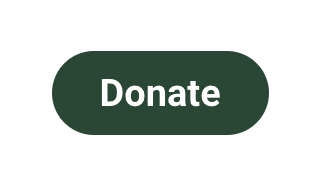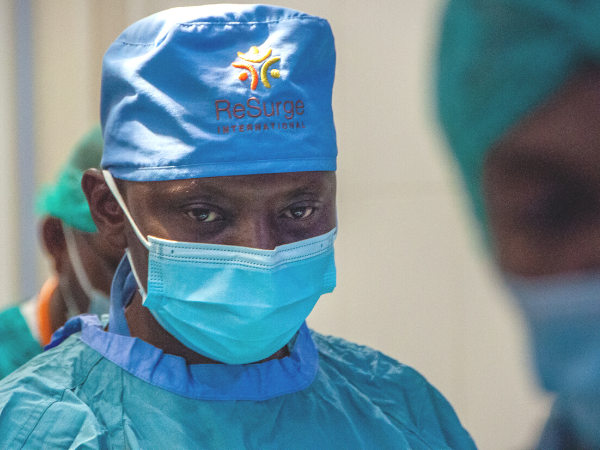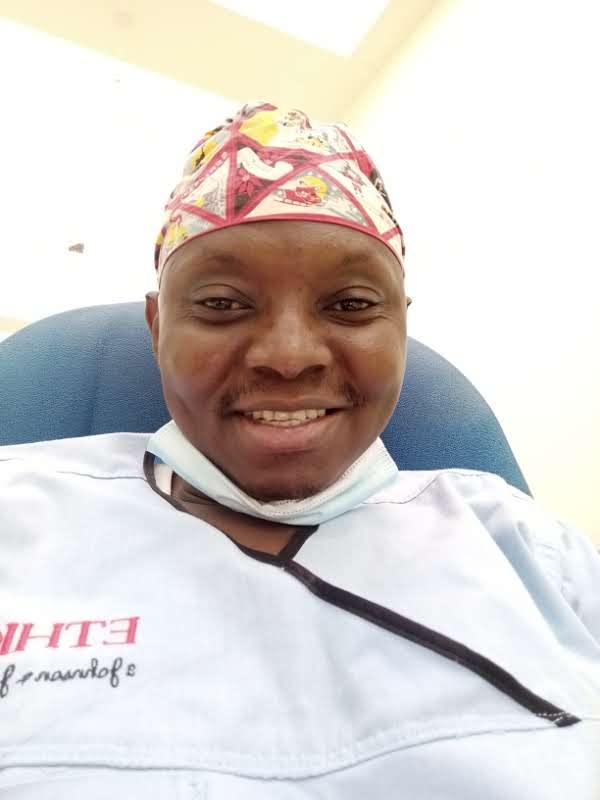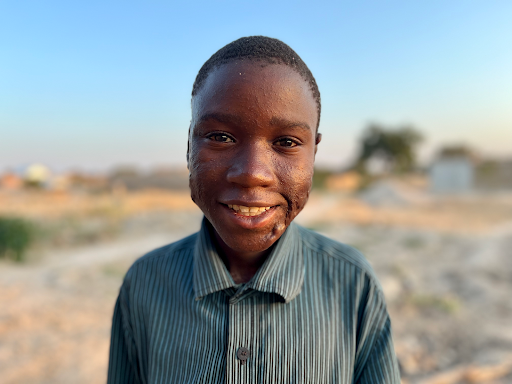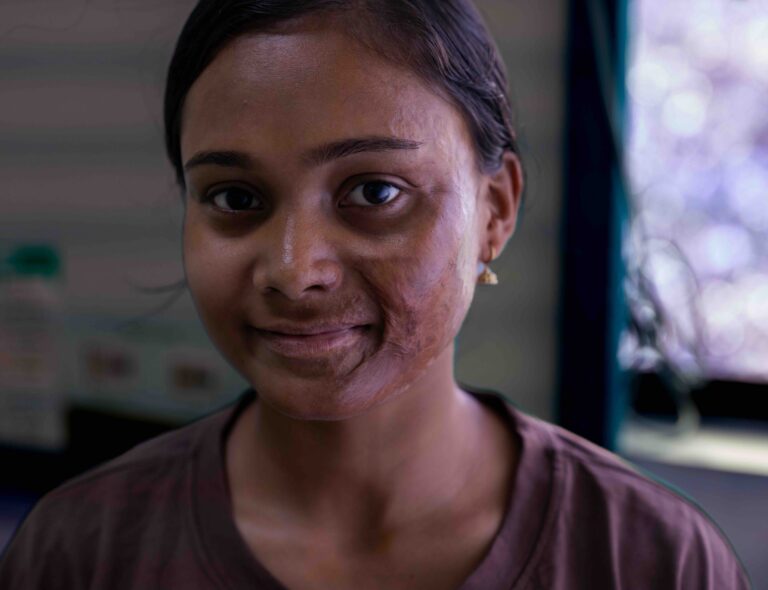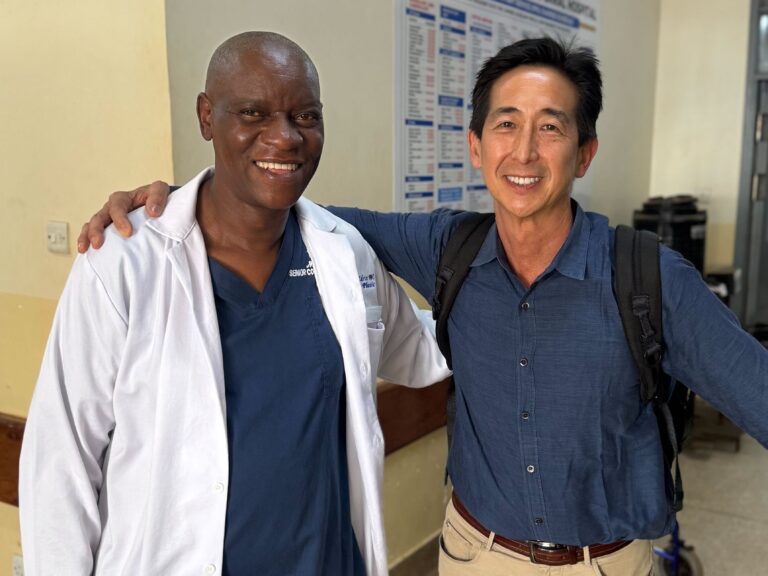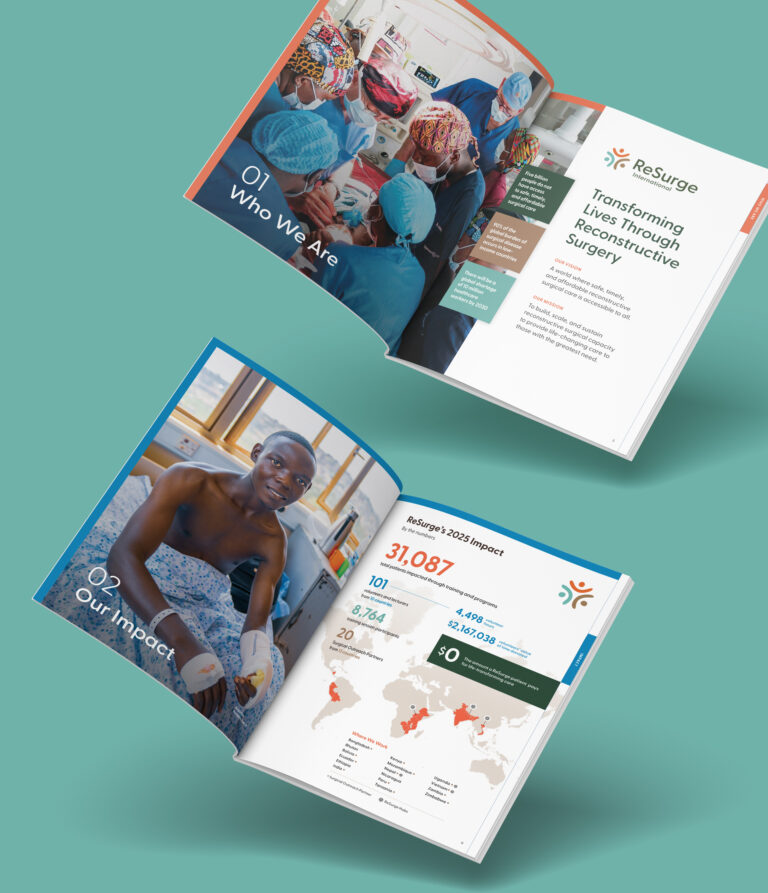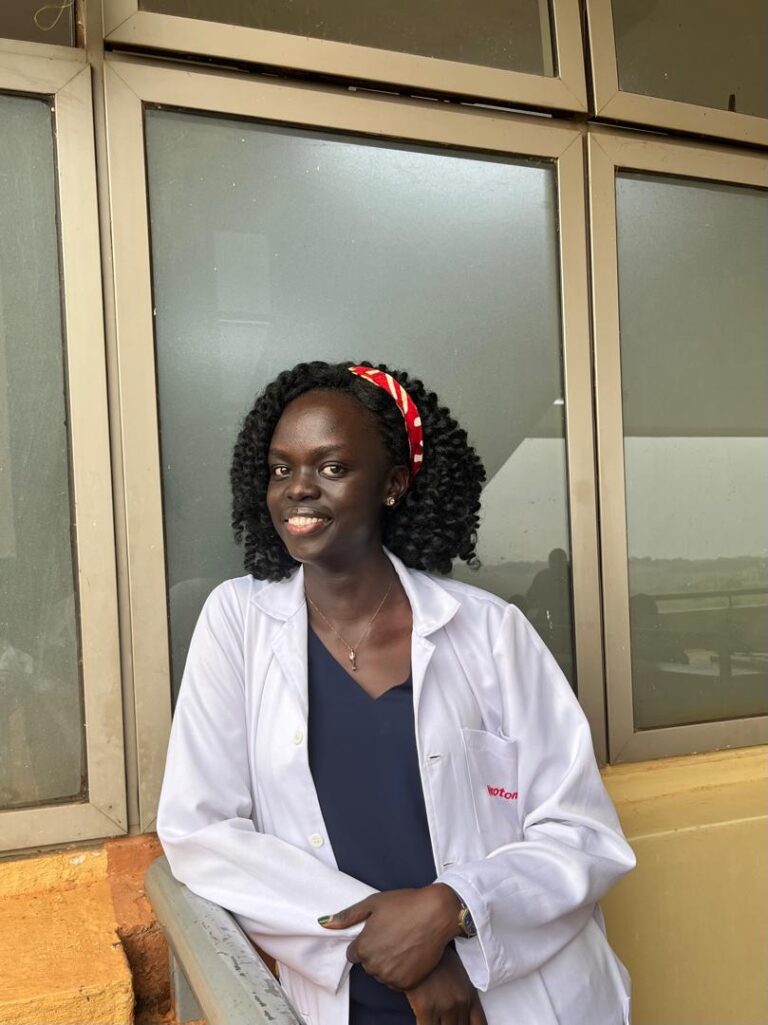It is a warm October afternoon in Itigi, a small village in central Tanzania. The round and full sun starts to descend over a small, thatched house nestled in between some wild tomato patches, a homemade brick kiln, and a giant cashew tree. It is the home of Whitnes and her two sons, Jacob and John.
Whitnes is playing soccer in the backyard with her two boys. She is the type of mom who belly-laughs at their jokes, who straightens their collars, and who would give the shirt off her back for her kids. In fact, Whitnes has given much more than the shirt off her back–she’s given her own skin to save the life of her eldest son, Jacob. Whitnes is a skin donor, who stepped up for her son when the unthinkable happened.
An Unthinkable Accident
When Jacob was about 10 years old, he was playing near the open cooking fire in his home when his clothing brushed the flame. This is a very common occurrence when families live in a single-room dwelling. Jacob’s entire body had caught fire and about 60% of his skin was burned. It was a severe case. Whitnes went immediately to the traditional healer who treated his wounds with honey and salves, but Jacob’s condition only grew worse. After about a month, his wounds became infected and he was unresponsive.
Whitnes was distraught. To make matters worse, her husband left the family soon after the accident–unable to cope with the challenges of their circumstance. Whitnes was alone, and she was losing her son.
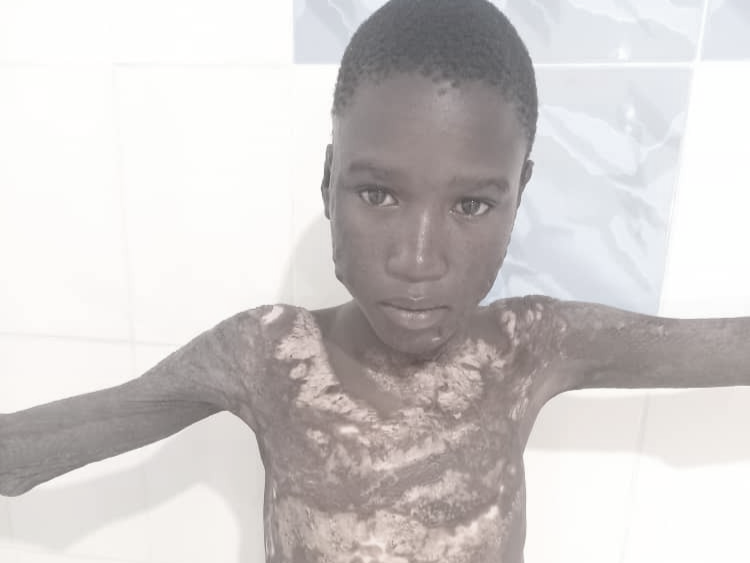
An Impossible Situation
Whitnes and her family are originally from Iramba, about 200 kilometers from Itigi. They are of the Nyiramba tribe, and are small-scale farmers who struggle to make ends meet on low wages. Despite their difficult circumstances, Whitnes’s family lived–quite literally–on a gold mine. The family, and many others like hers, were displaced from their land by a foreign company that wanted to mine the resources, promising a payout for decades that never came. Until it did, 20 years too late and not nearly a fraction of what it was worth. But it was enough to enable Whitnes to take action for Jacob.
At that time, there were no official reconstructive surgeons in the entire country. The traditional healer told Whitnes about a general surgeon he had heard about in central Tanzania, someone that could help Jacob. Whitnes took her payout from the mining company, packed her children and all her belongings, and made a pilgrimage to Itig. To meet ReSurge surgical partner, Dr. Seif Nuru.
Jacob’s case seemed impossible. With so much of his skin burned, Dr. Nuru couldn’t find a large enough healthy patch of skin for grafting and regrowth. In a high-income country, surgeons would have access to tools that could expand skin to cover large areas for regrowth. This was not an option in Tanzania. Everyone told Dr. Nuru it was impossible. But Dr. Nuru knew he couldn’t abandon Jacob and Whitnes in their time of need.
“Here was this young child with all the potential in the world in a very desperate situation,” said Dr. Nuru. “And here was his mother, who had done absolutely everything in her power to save her boy. I knew I couldn’t give up on them. Jacob’s life was too precious not to.”
Dr. Nuru spent hours consulting virtually with his mentor, ReSurge medical volunteer and surgeon, Dr. Chris Connor. They decided that it might be possible to treat Jacob with skin from a donor. There was one person to ask, Jacob’s mom. “I would do anything for my son. His future is everything, his future is my future.”
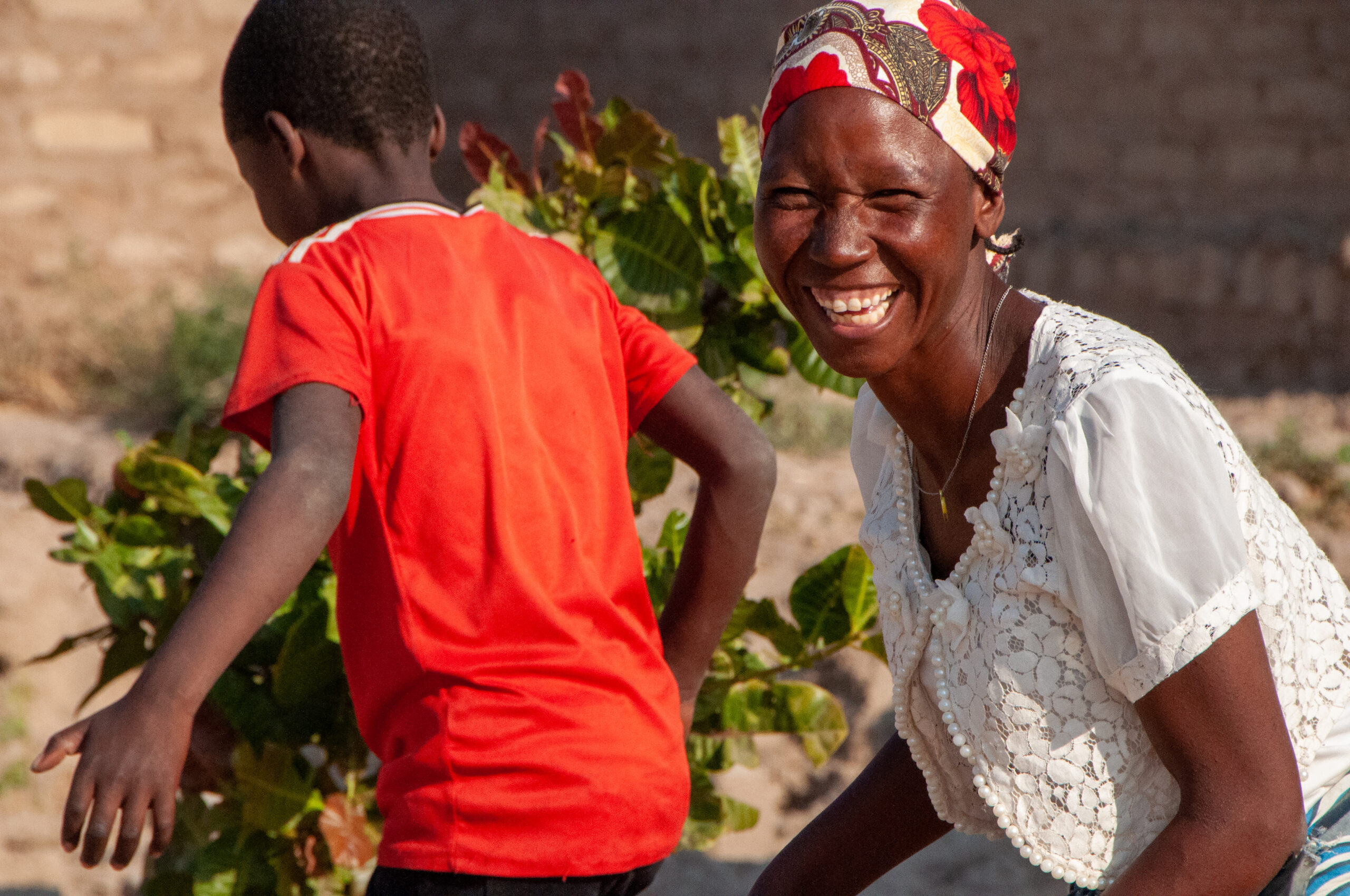
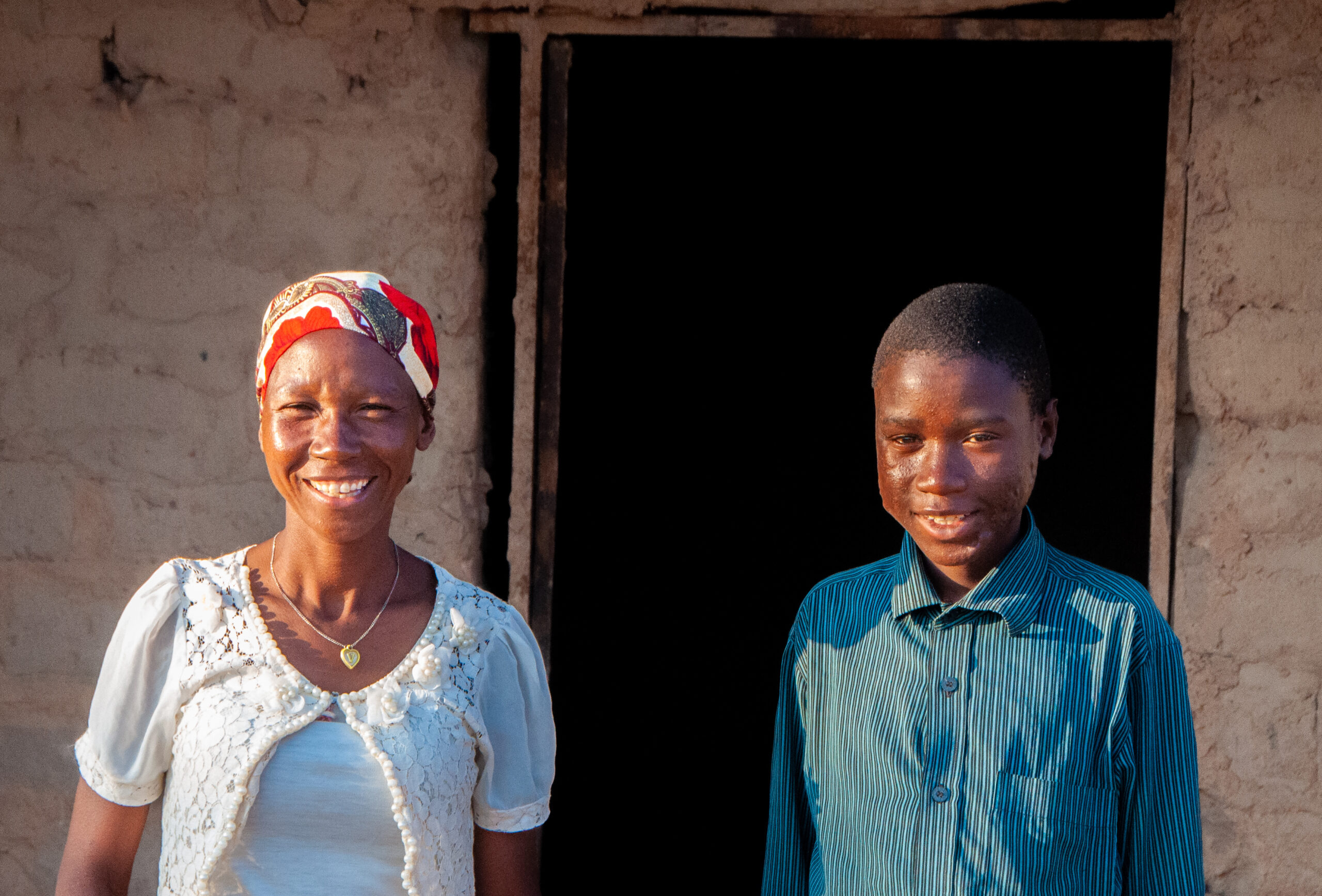
The Impossible Becomes Possible
The whole process took months, but eventually, Whitnes’s skin took, and Jacob started to heal. The impossible became possible. Jacob would need a few more surgeries, so they decided to make Itigi their home. Whitnes used the last of her funds to buy a small piece of land about 5 minutes from Dr. Nuru’s hospital.
How is Jacob now? Four years later, Jacob is a healthy 14-year-old teenager. He is in school and loves to play soccer after school. Jacob’s likes to study physics, biology, and chemistry and wants to continue his studies for as long as possible. Jacob is continuing to regain his confidence, he is still self-conscious about his scarring, so you will usually see him with a tall collar to hide the burn scars on his neck.
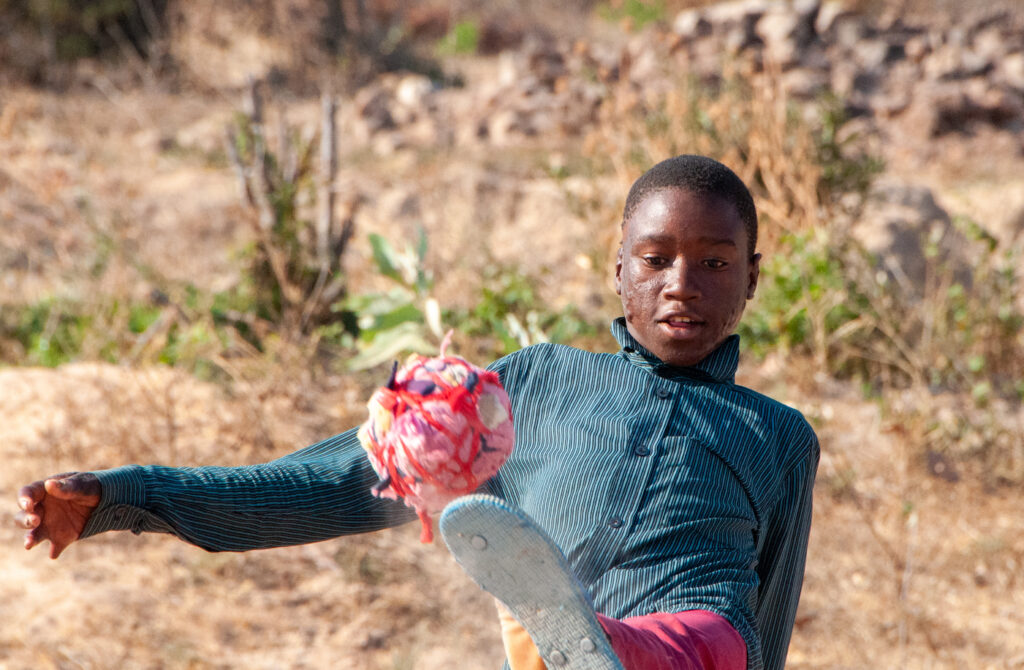
“I always tell Jacob, “you need to be proud of your scars, they symbolize your strength,” says Dr. Nuru. “I think one day he will be, but for now he is a teenager and is shy about everything.”
Jacob has some complications on his right had from his burn accident where the scar tissue has contracted over his joints, which makes holding things like pencils difficult in school. This year, Dr. Nuru plans to operate on the contractures with his mentor Dr. Connor, using the surgery as a hands-on training case to teach other local surgeons on how to do the procedure. Whitnes will also get treatment from the surgeons for some keloid scarring on her donor site.
Unfortunately Jacbos’s story is all too common. 11 million people are burned every year and over 96% of fatal fire-related burns occur in low-income countries like Tanzania. Women and children living below the poverty line are at particular risk.
ReSurge International is taking a different approach to this problem. Increasing access to surgical care by training, funding, and supporting local surgeons like Dr. Nuru so that patients like Jacob have access to free surgical care, and can be treated within the local system.
Universal access to health is a human right. If you would like to support surgeons like Dr. Nuru and patients like Jacob, you make a donation here. Together, we can make surgical care accessible to all.
